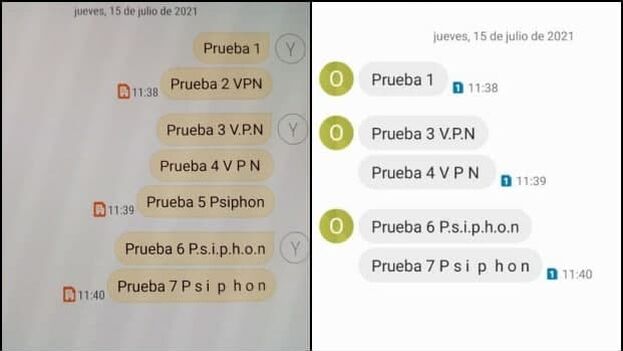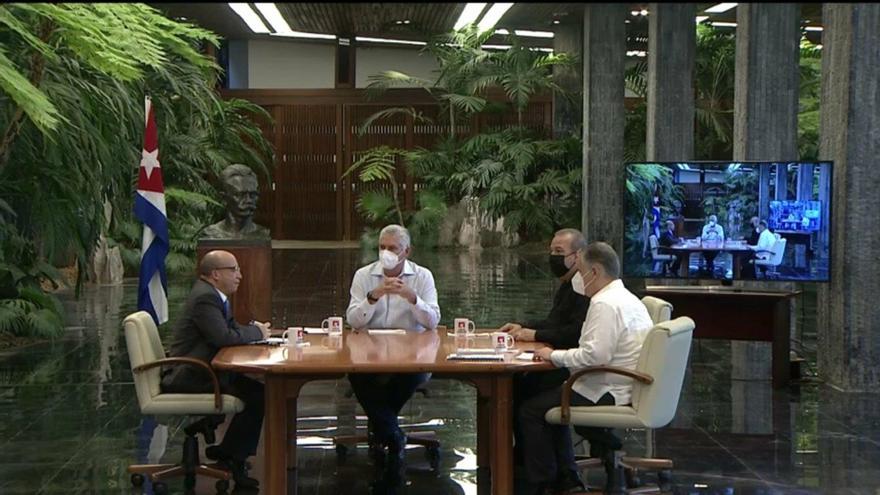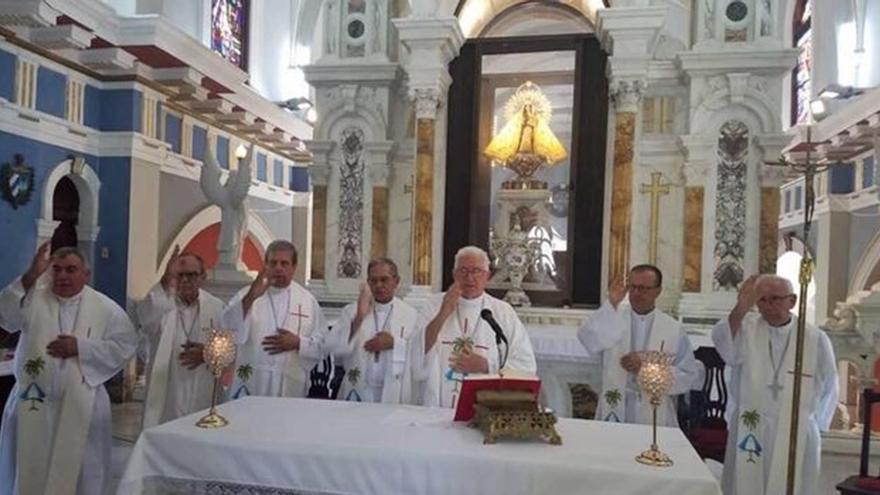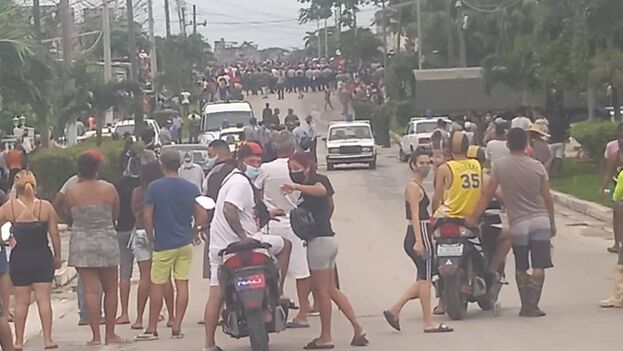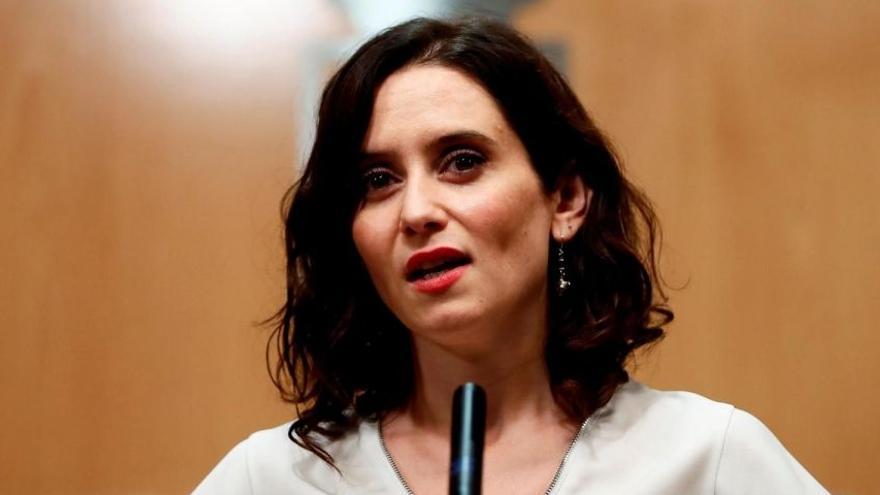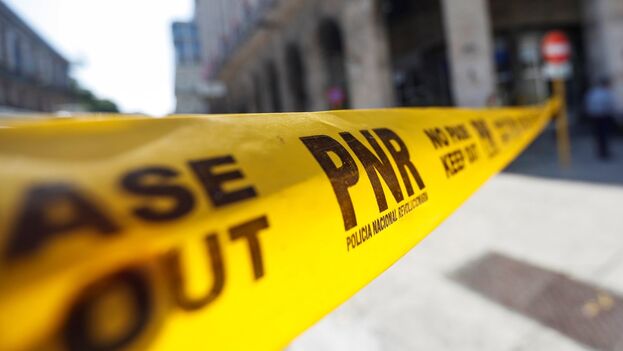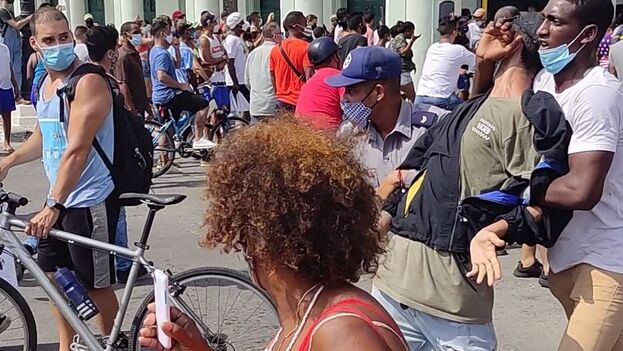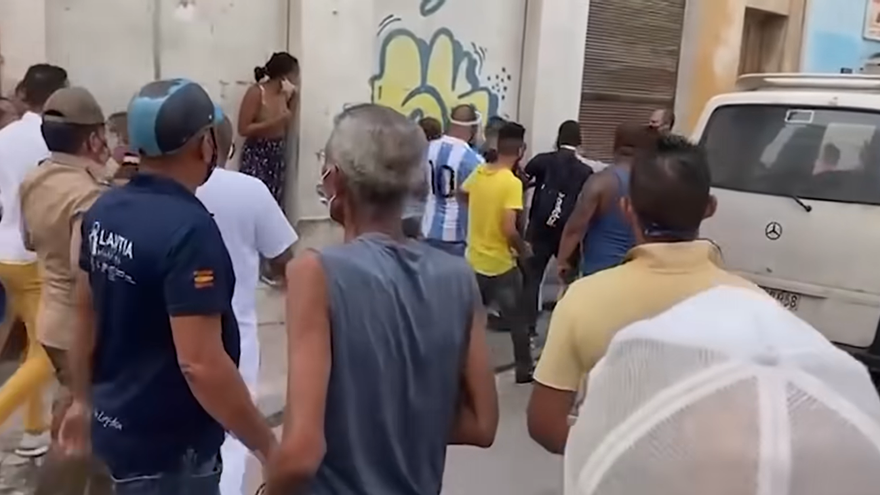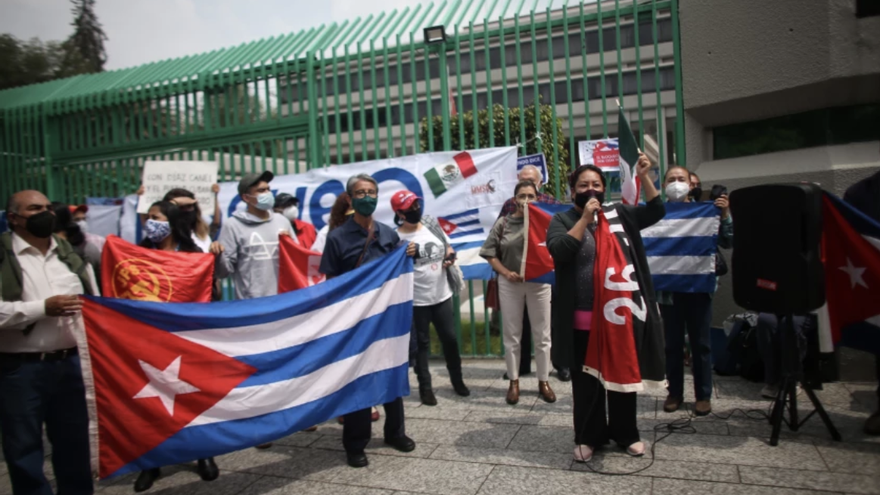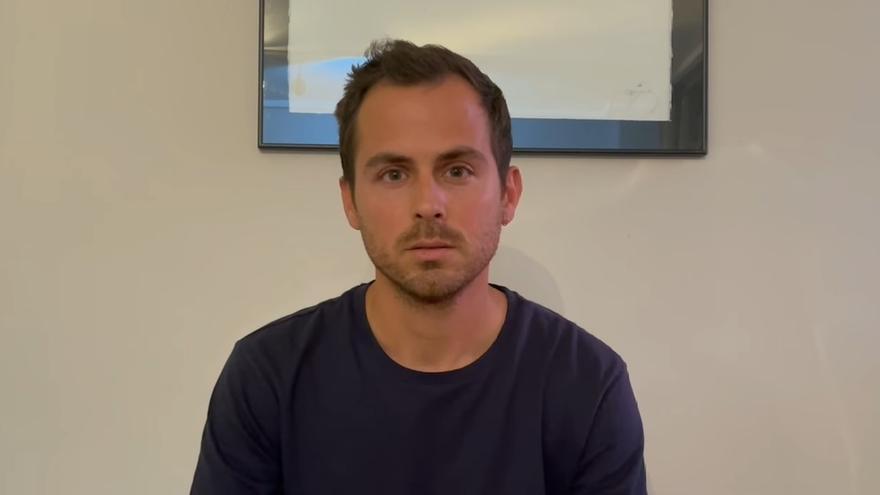
![]() 14ymedio, Havana, 14 July 2021 — Carlos Alejandro Rodríguez Halley, nephew of General Luis Alberto Rodríguez López-Calleja, sent a strong message to his uncle and to the island’s power leadership: “Lay down your arms.” The young man called for the beginning of a “process of transition to democracy” after the protests that took place throughout the island in recent days.
14ymedio, Havana, 14 July 2021 — Carlos Alejandro Rodríguez Halley, nephew of General Luis Alberto Rodríguez López-Calleja, sent a strong message to his uncle and to the island’s power leadership: “Lay down your arms.” The young man called for the beginning of a “process of transition to democracy” after the protests that took place throughout the island in recent days.
López-Calleja, Raúl Castro’s ex-son-in-law, although he has kept a low profile within the regime’s politics, is a member of the Central Committee of the Communist Party, executive president of Grupo de Administración Empresarial, S. A. (Gaesa) and is considered by analysts as the man behind the economic power of the Castro family.
“At the moment I am not in Cuba, I left for fear of reprisals from my own family for projecting myself in my social networks in favor of human rights and continue reading
The young man said that his family is part of the power elite on the island and mentioned that his words were addressed to them, to the Cuban military, and with special emphasis he mentioned his uncle López-Calleja and his cousin Raúl Guillermo Rodríguez Castro, Raúl Castro’s grandson.
“I call for harmony and for them to lay down their arms. Let a process of transition to democracy begin in Cuba. The people have shown that they no longer want you in power, listen to your people,” he added.
Rodríguez Halley called for an end to violence, imprisonment and repression: “do not be responsible for more bloodshed.” The people demonstrated in the streets, he said, “that they do not agree with their government, a failed government that has led to a situation of health, economic, social and political crisis.”
Lopez-Calleja’s nephew also rejected the position of the island’s regime of blaming the U.S. Government for what is happening in the country. The U.S. Administration “has demonstrated that it is not going to intervene militarily in Cuba,” he said.
“Enough repression, lay down your arms. I make a call from the love I have for my family, for my country, for all Cubans and for humanity. Let us not forget that ’homeland is humanity’,” he concluded.
At the Eighth Party Congress held last April, López-Calleja was appointed a member of the Political Bureau. The military consortium Gaesa controls a large part of the tourism business and other strategic sectors on the island. Analysts had been predicting for years the military man’s rise to positions closer to the top of Cuban power.
Rodríguez Halley is an actor and audiovisual creator, and has worked in films such as Caballos, by Fabian Suárez and in 2019 he independently wrote and directed the short film Un chino cayó en un pozo, awarded a Diploma al Mérito by the jury of the Panama Human Rights Film Festival (BannabáFest).
Translated by: Hombre de Paz
____________
COLLABORATE WITH OUR WORK: The 14ymedio team is committed to practicing serious journalism that reflects Cuba’s reality in all its depth. Thank you for joining us on this long journey. We invite you to continue supporting us by becoming a member of 14ymedio now. Together we can continue transforming journalism in Cuba.


